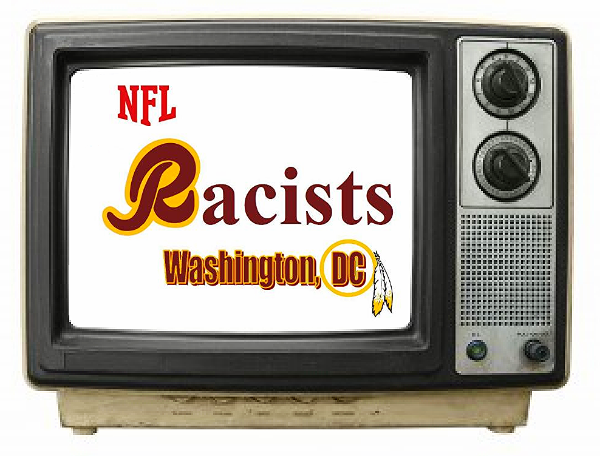| A few years ago, pundits complained about the Federal Communication Commission’s “puritanical bent … under the Bush administration,” as the Denver Post put it. The issue had to do with the fallout over Janet Jackson’s infamous “wardrobe malfunction” during halftime of the 2004 Super Bowl, in which she briefly exposed herself to millions of viewers. The FCC tried to impose fines against the network and its affiliates. |
| | Today, with a different administration in control of the White House, the FCC may be on a crusade of a different sort. FCC Chairman Tom Wheeler has said the board will give serious consideration to a petition filed by George Washington law professor John Banzhaf III, asking that a local radio station lose its license for mentioning the name of the Washington Redskins football team. This, the petitioner said, is “akin to broadcasting obscenity” because it is a racist and profane epithet. Wheeler seemed to agree, noting, according to a Reuters report, that many words over time have become inappropriate in public, “and I think the name that is attributed to the Washington football club is one of those.” Public-decency standards inhabit the Goblin Valley of government regulation these days. No matter how many eons a standard may have been in place, it doesn’t take much to topple it. The late George Carlin, a comedian who reveled in vulgarities, had a routine that focused on what he called the seven words that never could be said on television. That list is shorter these days as the words, one by one, seem to fall into the basket of general usage. Adding a new one to the list may seem to buck that trend. In reality, it is merely evidence of how two sides in the nation’s great cultural divide perceive what is obscene and dangerous. Frankly, the two sides are unnecessarily at odds. You won’t need to wander too far from the center stripe of the nation’s collective moral highway to agree that Washington’s football team has an offensive nickname. Racial sensitivities have evolved considerably since George Preston Marshall picked up what was left of the bankrupt Newark Tornadoes in 1932 and launched the current franchise as the Boston Redskins. Banning the name from the airwaves may be extreme. After all, it is a legitimate NFL franchise. (The team’s owner could end all this by simply changing the name on his own.) But you shouldn’t have to veer too far to the right, either, to acknowledge that other forms of indecency, equally harmful to the culture, have gained a disturbingly free rein in recent years. The very mention of the Parents Television Council can raise the hackles of certain segments of society, but it is the only organization that takes the time to catalog what passes for entertainment on publicly held airwaves these days. A report it issued last year, “TV’s Newest Target: Teen Sexual Exploitation,” looked at “the prevalence and trivialization of sexual exploitation in the media.” It concluded that more and more TV shows are using underage girls as foils for sexual comedy. Among its conclusions were two disturbing findings: First, “The appearance of an underage female character in a scene increased the likelihood that the scene would include sexual exploitation.” And second, “The appearance of an underage female character in a sexually exploitative scene increased the probability that the scene would be presented as humorous.” The PTC is not alone in its conclusions. The more mainstream American Psychological Association issued a report a few years ago on what it called the “sexualization of girls” in modern culture. “Sexual comments and remarks are pervasive on television,” it said, “and research has shown that they disproportionately objectify women.” The APA cited evidence that this cultural trend, in many areas including on television, was so damaging for young women that it kept them from “pursuing careers in science, technology, engineering and mathematics; increased rates of sexual harassment and sexual violence; and (led to an) increased demand for child pornography.” That should be more than enough evidence for the FCC to come down hard on networks for the good of the public. If the FCC is serious about banning things that hurt people, it could hardly excise an NFL team’s name without tackling broadcasting’s other harmful content, as well. |


 RSS Feed
RSS Feed

